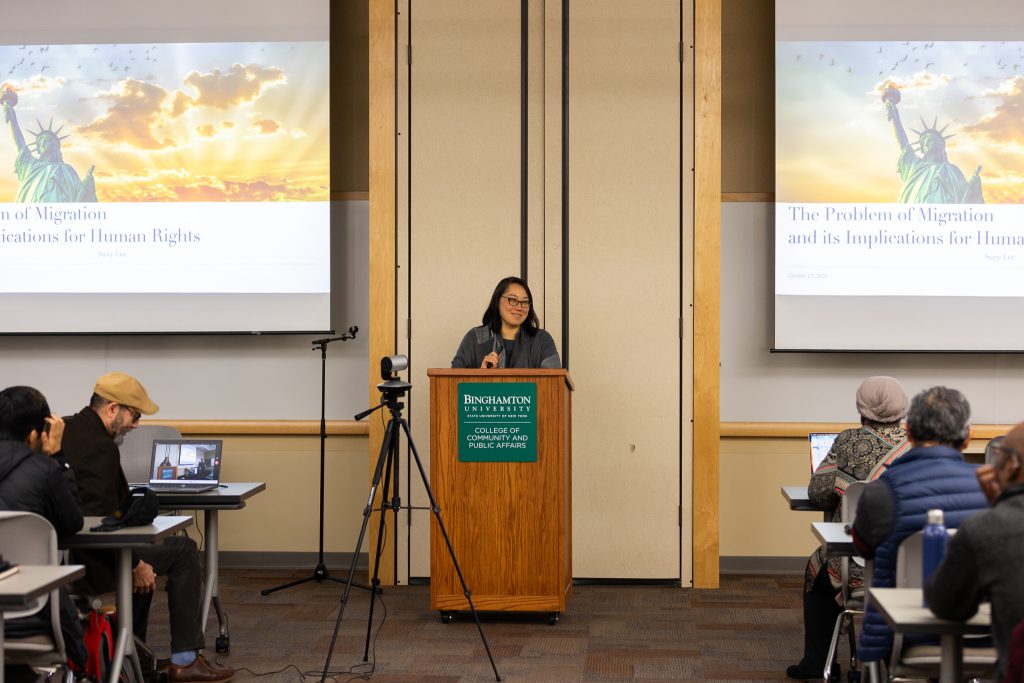The Master of Science in Human Rights program hosted assistant professor and director of the program, Suzy Lee, as part of this year’s Lubna Chaudhry Human Rights Lecture Series.
The lecture, “The Forces Shaping our World’s Populations: The Political Economy of Global Migration and Implications for Human Rights,” was held at the University Downtown Center on Thursday. It marked the first installation of the program’s 2024-25 Lubna Chaudhry Human Rights Lecture Series, named in honor of an associate professor of human development who passed away in August 2020. According to Lee, this lecture series aims to expand on what is taught in the classroom by creating opportunities for students to interact with scholars and activists.
Rene Rojas, an associate professor of human development, explained the reasoning behind choosing Lee as this year’s first speaker.
“Dr. Lee’s research focuses on the political and economic forces shaping global migration, and she has also written on the politics of immigration to the US from a progressive perspective,” Rojas wrote. “So we felt that her scholarly expertise and her overall concerns over the human and social rights of migrants as well as working people in receiving countries made her an ideal speaker to open this year’s series.”
Amid election season, Lee’s talk centered around the politics of immigration in the United States, speaking less about her upcoming book “Temporary Measures: Migrant Workers and the Developmental State in the Philippines and South Korea,” as initially advertised. She began by defining the “problem of migration” — an uncontrolled crisis of millions of people crossing the border — and debunking it as a political myth. Lee said how the people migrating to the United States come for all sorts of reasons, including for short trips, vacations, business trips and long-term stays.
Lee encouraged the audience to view migration not as a crisis, but as the “normal state.”
“More than half of our population, a number that big, ends up just crossing the border going back and forth, all the time,” Lee said. “That’s the standard that we have to think about. Migration is not the crisis, it’s the normal state.”
The talk delved into exploring “international migration” and how politicians talk about safeguarding the United States from this by using two typical defenses. These defenses, according to Lee, are blaming immigrants for taking resources like “housing, jobs, social services” and “defending some idea of a national identity.” At the end of her lecture, time was set aside for members of the audience to ask unanswered questions about international migration and other key ideas presented in the lecture.
Lee said she hopes students attending the series recognize the variety of work being done by scholars and activists in human rights.
“We hope the students get from this year’s series tools to think about immigration in ways they may not have thought before — histories they may not have heard before, data they may not have seen before, and new theoretical approaches to the material they may not have encountered before,” she wrote.
The second installation of the lecture series is expected to take place on Nov. 11 featuring a group of migrant organizers and Canadian activist and writer, Harsha Walia.



